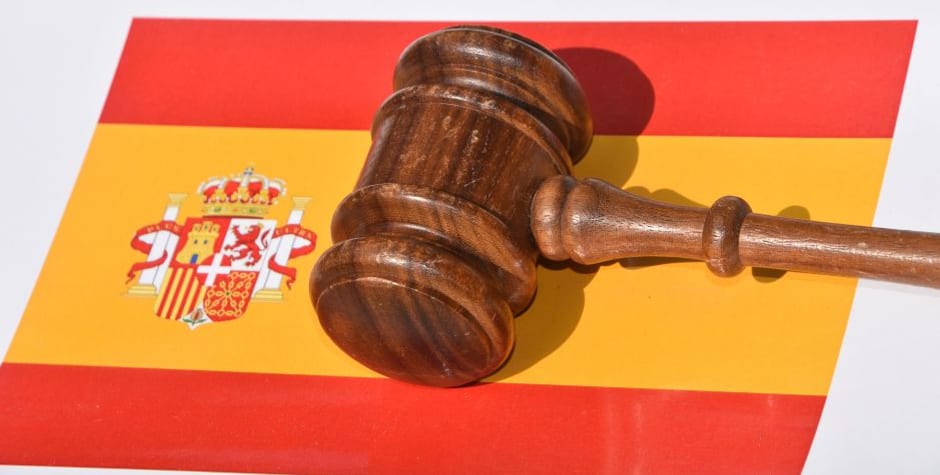

2010 Spanish Abortion Law Confirmed by the Constitutional Court: Major Conflicts of Interests Revealed
2010 Spanish Abortion Law Confirmed
In 2010, the Left was in control and José Luis Rodriguez Zapatero’s government approved a new abortion law called the “Term Law,” which expanded the legality of abortion in Spain.[1] Before this law, women in Spain could only obtain an abortion in three specific cases: rape, risk to the physical and psychological health of the mother, and malformation of the fetus.[2] However, under this recent legislation, women can abort for any reason up to fourteen weeks of gestation or up to twenty-two weeks if the unborn child has a genetic abnormality.[3] Although 2010 was more than ten years ago, the law’s effects remain relevant due to a judgment that the Spanish Constitutional Court delivered in June of this year. This article first explores the timeline of the Court judging the 2010 abortion law, then proceeds to explain how four of the Court’s judges who delivered the judgment for the law Court lacked impartiality; it ends by noting how officials and NGOs responded to the Court’s lack of impartiality.
The 2010 Abortion Law
Immediately after the enactment of the 2010 abortion law, the Partido Popular—the main conservative political party—appealed it before the Spanish Constitutional Court, questioning its constitutionality. But the Court did not immediately respond to the appeal. Over thirteen years passed before the Court delivered its judgment, meaning thousands of children were aborted. Thus, the question is: why did the Constitutional Court take so long to respond to this appeal? It seems incomprehensible for the Court to take so many years to judge an appeal concerning the most important fundamental right: the right to life. Notably, the Court did not judge this issue until establishing a pro-abortion majority. In a 7-4 vote, the Court declared that this 2010 abortion law was constitutional and consecrated abortion as a legal “right.” Although the Court did not consider abortion to be a “fundamental” right, it stated that abortion is an unequivocal and inalienable part of the “self-determination of the woman’s will.” This judgment, however, was riddled with partiality.
An essential element of an effective judiciary is impartiality, which is consistent with the rule of law, as enshrined in the Spanish Constitution (art. 24), the European Convention on Human Rights (art. 6.1), and the Charter of Fundamental Rights of the European Union (art. 47). As supported by these articles, judges found to not be impartial must abstain from the judgment or be disqualified. However, four of the eleven judges[4] who delivered this judgment severely lacked impartiality: they were involved in drafting the 2010 law before serving on the Court. Still, none of these drafters-turned-judges abstained or were disqualified. This poses a threat to the legitimacy of the Constitutional Court of Spain, rooted in part in its presumed judicial impartiality.
The Four Judges who Lacked Impartiality
Four of the eleven judges on the Constitutional Court should have been recused; one of the four even attempted to abstain from the judgment on the abortion law but was denied. Article 219 of Ley Organica 6/1985 del Poder Judicial (LOPJ) [Organic Law 6/1985 on the Judiciary][5] contains the following grounds for disqualification: (1) having intervened as a prosecutor in the proceedings;[6] (2) having held a public office, held a job or exercised a profession in which he has participated directly or indirectly in the matter that is the object of the lawsuit or case or in another related to the same;[7] and (3) having held a public or administrative position in which he or she may have had knowledge of the subject matter of the dispute and formed a criterion to the detriment of due impartiality.[8]
The first judge is the current president of the Court himself, Conde Pumpido. In 2010, President Pumpido was the State Attorney General. In this capacity, he actively participated in drafting this abortion law. As mandated by Spanish law, President Pumpido should have recused himself for lack of impartiality, but his recusal never occurred.
The second judge, Concepción Espejel, expressed her willingness to abstain from the debate on the abortion appeal because, as a member of the General Council of the Judiciary (“CGPJ”) in 2010, she lacked impartiality.[9] The Constitutional Court, however, determined that Judge Espejel’s abstention was “unjustified” and the judges denied her recusal. Similar to Judge Espejel, Magistrate Judge Inmaculada Montalbán, was also a member of the General Council of the Judiciary, but she did not request her abstention.
Lastly, Judge Juan Carlos Campo Moreno was previously a Deputy member of the same political party (PSOE) that enacted the 2010 abortion law. As a parliamentarian, Judge Moreno was a member of the Constitutional, Interior, and Ministry of Justice Commissions in the XI, XII and XIII legislatures.[10] When the 2010 law was approved, Judge Moreno was Secretary of State for the Ministry of Justice; his role as Secretary included examining the preliminary draft of the law and proposing it to the Council of Ministers. One cannot remain impartial when he or she has been part of the drafting of the law and a member of the very party that approved that law.[11] Thus, Judge Moreno should have recused himself for lack of impartiality.
The Response of NGOs and Officials
Before the Court delivered its judgment, several high-ranking officials and associations appealed, requesting the recusal of the aforementioned judges due to lack of impartiality. But without giving any further justification, the Court denied the recusals, determining them to be “inadmissible.” Notably, had the Court accepted the abstention and recusals, it would not have met the minimum eight-member quorum required by law to be able to rule on the appeal.
In response to the Court’s lack of impartiality in its judgment, the Asamblea por la Vida, la Libertad y la Dignidad (ACdP) [Assembly for Life, Liberty, and Dignity] made up of more than 140 organizations, sent to the Court a written complaint. This complaint was sent before the Court delivered its judgment and appealed to the judges’ conscience, indicating causes for recusal.[12] The Court never answered the Assembly’s letter.
These eleven judges, with seven votes in favor and four against, ruled that the 2010 abortion law was constitutional. Additionally, as noted above, the Court created a right to abortion that does not exist in Spain’s constitutional text. As the dissenting judges’ wrote, the Court exceeded
the scope and limits of the control of constitutionality . . . by recognizing a new constitutional right, which is outside the margins of the control of constitutionality . . . since recognizing new fundamental rights is a power of the constituent power . . . not of the Constitutional Court.[13]
Such an blatant lack of impartiality is unacceptable. In fact, the ACdP, several officials, and members of the Assembly plan to: prepare an appeal to the European Court of Human Rights to allege that this important sentence is null and void; file a complaint with the European Parliament; and to submit a letter to the EU Commissioner for Justice. This is because, as the officials and Assembly state: “Impartiality and its appearance before society, essential in a State of Law . . . has been flouted by the highest court called precisely to be the guarantor of compliance with the law.”[14]
By Enrique Tudela Saladich
____________
[1] B.O.E. 2010, 55. https://www.boe.es/eli/es/lo/2010/03/03/2/con.
[2] B.O.E. 1985, 184. https://www.boe.es/eli/es/o/1985/07/31/(2).
[3] These measures would have greatly pleased abortion lobbyists in Poland, who were recently stopped in an ECHR case that the ECLJ intervened in.
[4] Usually, there are twelve judges on the Court, but at the time the abortion law was decided, Judge Alfredo Montoya Melger resigned due to a medical illness and his position had not been filled.
[5] B.O.E. 1985, 157 art. 219. BOE-A-1985-12666 Ley Orgánica 6/1985, de 1 de julio, del Poder Judicial.
[6] Id. § 6ª.
[7] Id. § 13ª.
[8] Id. § 16ª.
[9] Her request to abstain was based on LOPJ art. 219 § 16ª.
[10] He has held many positions within the PSOE, including spokesperson of the Socialist Group in the PSOE and substitute member of the Permanent Deputation. Secretary General of Relations with the Parliament of the Andalusian Regional Government (2014-2015), Director General of Relations with the Justice Administration of the Andalusian Regional Government (1997-2001). It cannot be overlooked that the law which is the subject of IR 4523/2010, was a draft law approved by the Government of the Spanish Socialist Workers' Party (PSOE) in the Council of Ministers on 26 September 2009, at the proposal of the Ministers of Equality, Justice and Health and Social Policy. At that time he was Secretary of State for Justice (2009-2011), also a freely appointed position.
[11] This runs directly against LOPJ art. 219 §6ª, 10ª, 13ª, 16ª.
[12]Asamblea por la Vida, la Libertad y la Dignidad [Assembly for Life, Liberty, and Dignity], Complaint before the Constitutional Court, 5521-2023 (March 16, 2023).
[13] S.T.C. May 9, 2023 (B.O.E. No. 139, p. 83708 at 83763), https://www.boe.es/diario_boe/txt.php?id=BOE-A-2023-13955.
[14] Complaint before the Constitutional Court, p 19.












